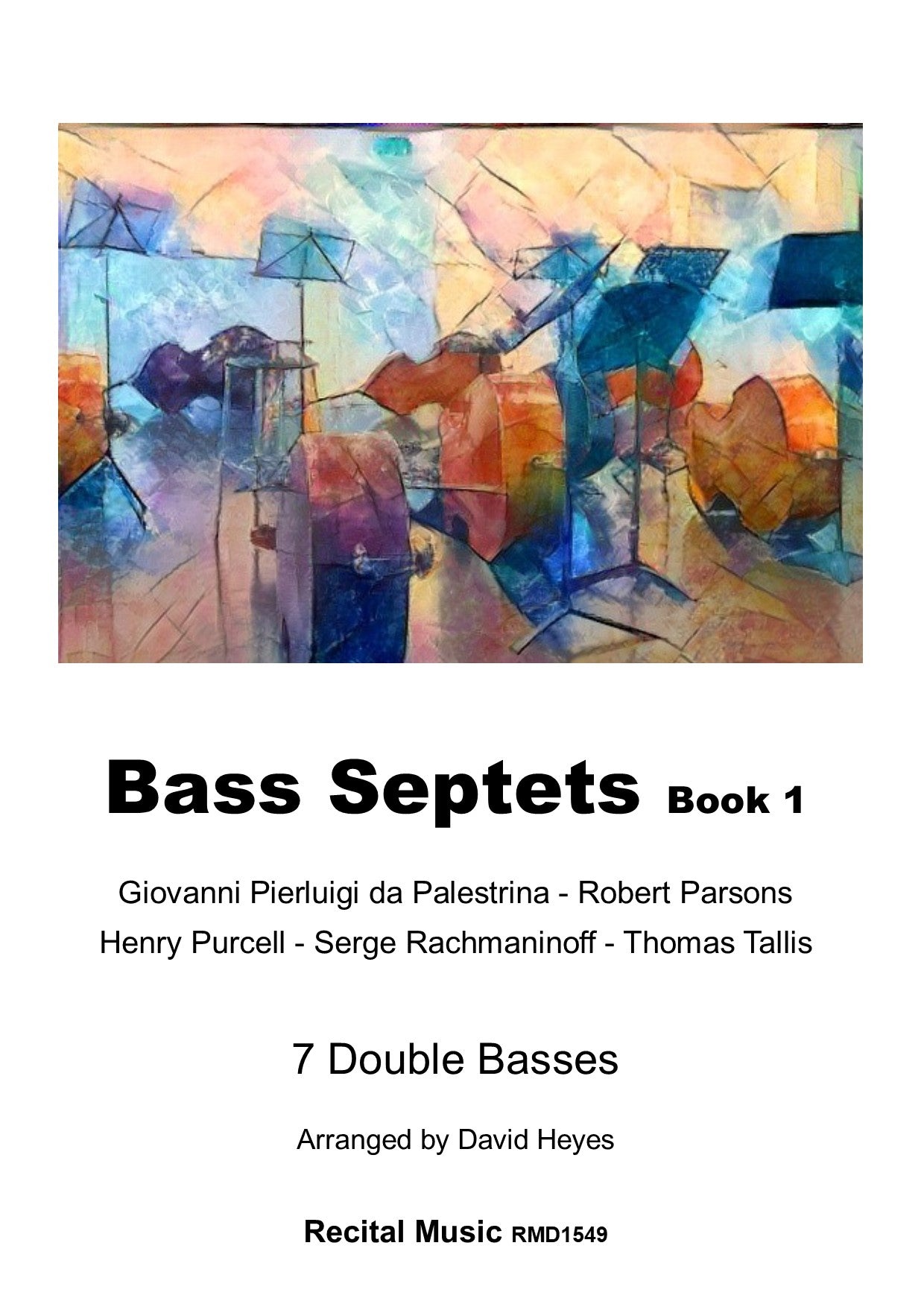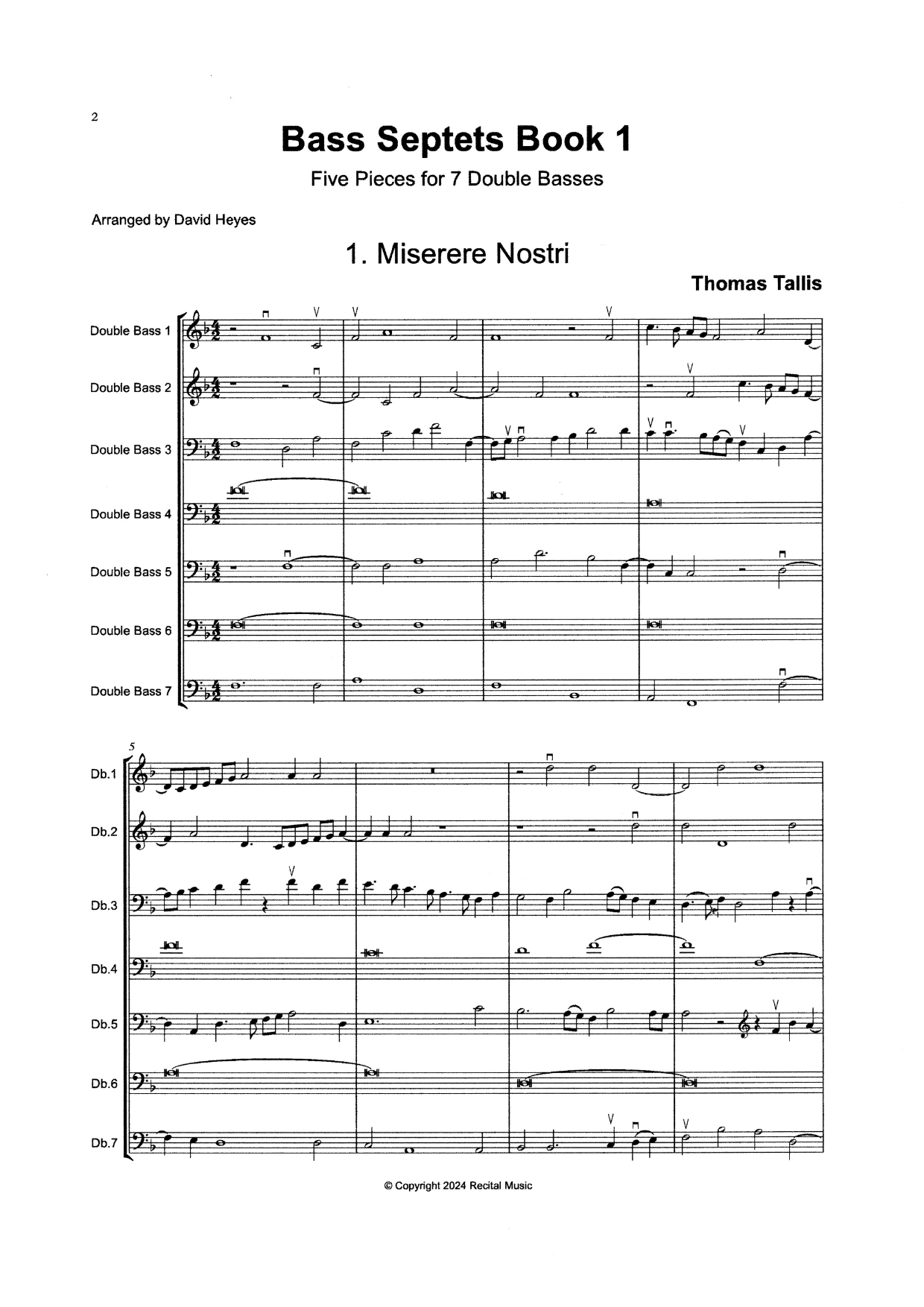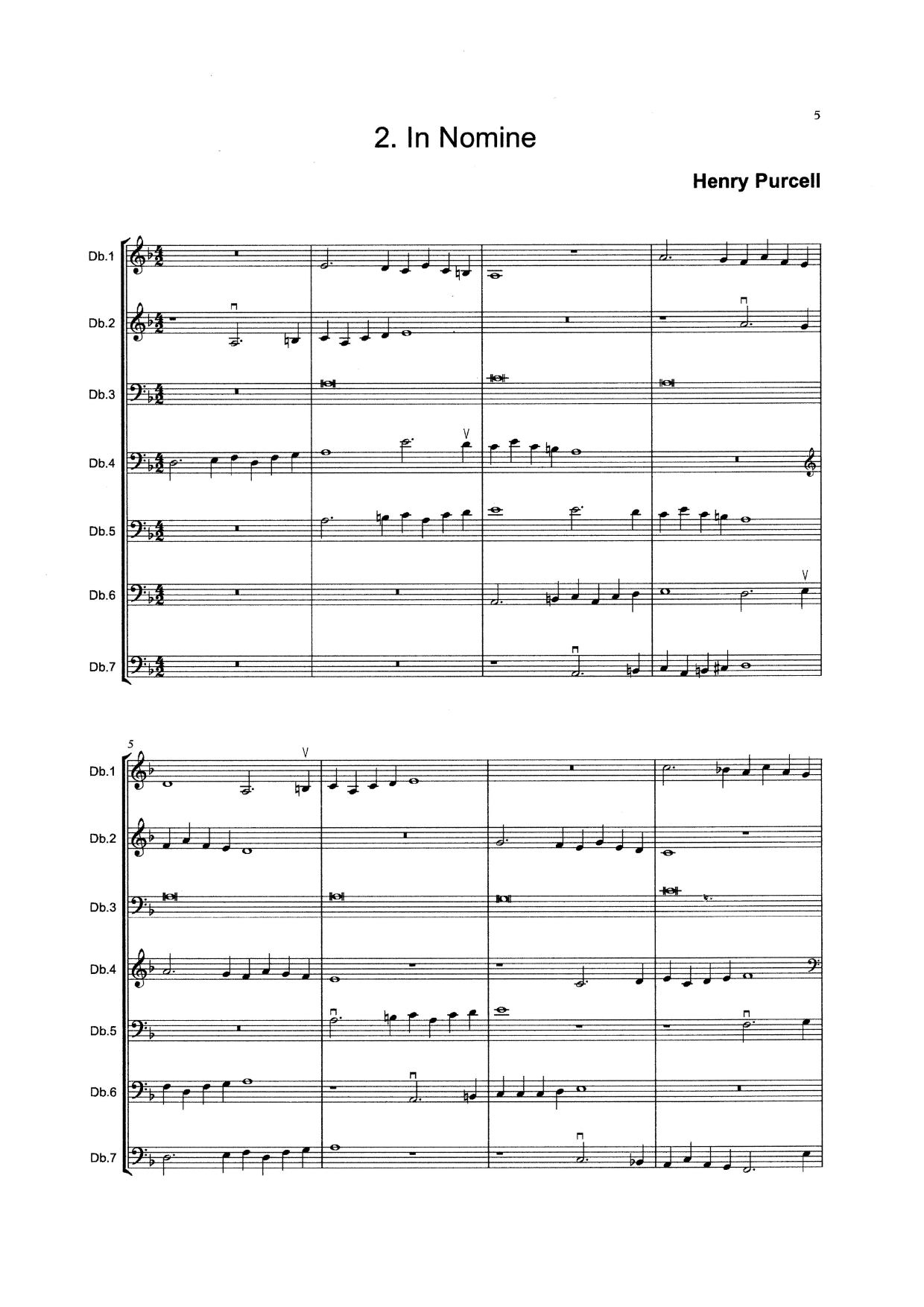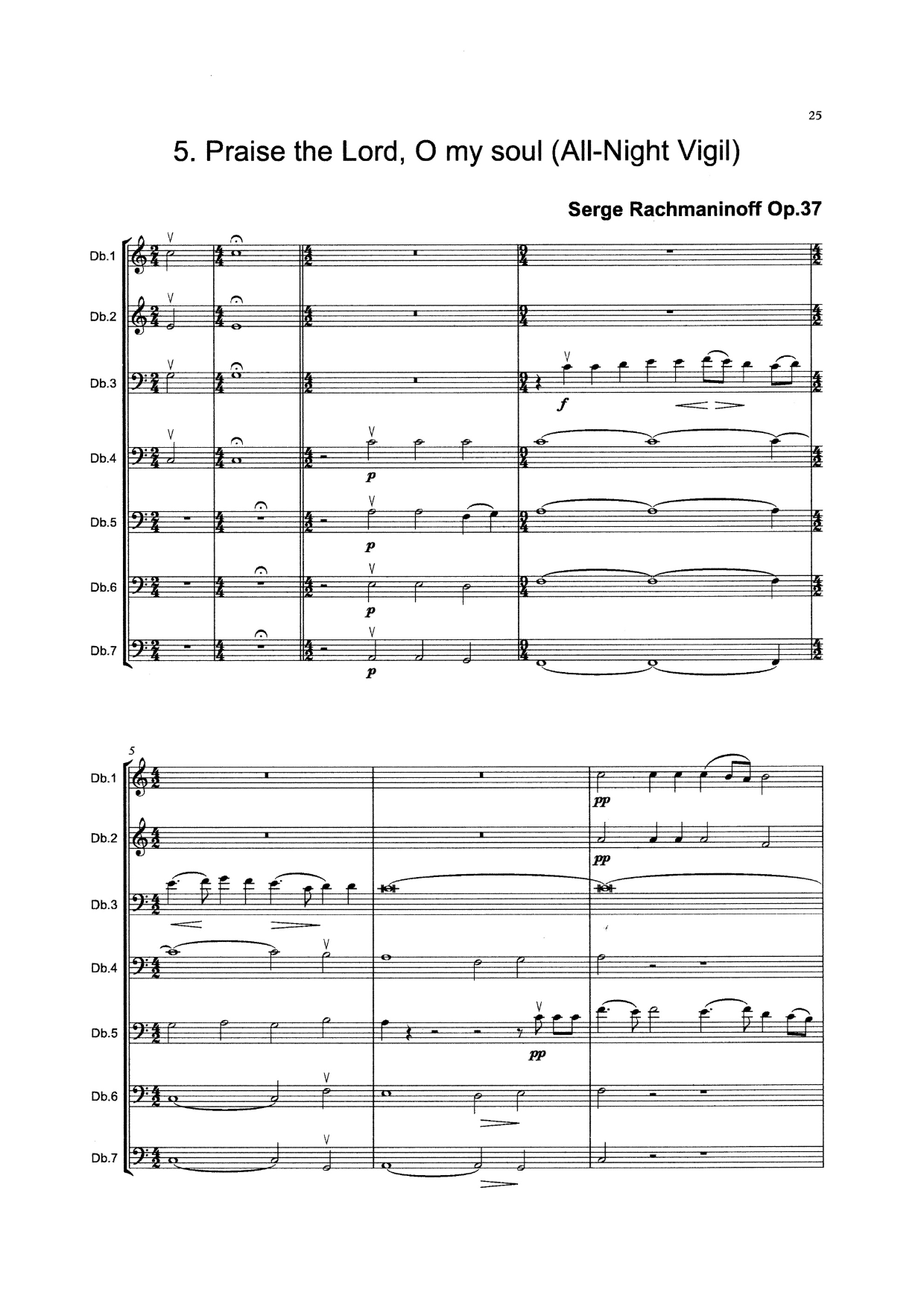David Heyes
Bass Septets Book 1: Five Pieces for Seven Double Basses (arr. Heyes)
Bass Septets Book 1: Five Pieces for Seven Double Basses (arr. Heyes)
Couldn't load pickup availability
About the Septets
Bass Septets Book 1 is a collection of five instrumental and choral works from the 16th to 20th centuries, newly arranged for double bass septet by David Heyes.
Each piece offers musical challenges alongside great opportunities to showcase the sonorous and singing qualities of the double bass. Contrapuntal, solo and chordal writing is well suited to the double bass ensemble, encouraging good ensemble playing, knowing when to bring the musical line out of the texture and when to balance the music with your colleagues.
The pieces can be performed with or without a conductor.
Table of Contents
1) Thomas Tallis (1505-1585) - Miserere Nostri was first published in London in 1575 as part of Cantiones sacrae, a joint publication with his friend William Byrd. It has been described as “an extraordinary feat of canonic writing” and there is something of interest for each bassist, even for Bass 7 with its sustained musical line which underpins the entire piece.
2) Henry Purcell (1659-1695) - In Nomine of Seven Parts dates from c.1680 and was composed for 7 viols or other stringed instruments. The canonic writing adds interest for players and audiences alike, alongside contrapuntal and chordal writing with opportunities to create amazing spatial textures and sonorities.
3) Giovanni Pierluigi da Palestrina (c.1525-1594) - Agnus Dei is for seven voices and is a movement from Missa Veni Creator Spiritus. The part writing is exquisite, well suited to the double bass septet, and the addition of dynamics alongside a judicious use of vibrato will help to create beautiful music which is as relevant today as the day it was composed.
4) Robert Parsons (1535-1572) - In Nomine à 7 is consort music for seven instruments and is one of the most significant works of its type. Parsons was a prolific composer of the Tudor period and is noted for his church music in particular. This piece features canonic writing throughout, with effective contrapuntal interplay between the instruments, creating a work of stunning breadth and beauty.
5) Sergei Rachmaninoff (1873-1943) - Praise the Lord, O my soul is the second movement from Rachmaninoff’s Vespers Op.37, also known as All-Night Vigil. Originally for soloists and SATB choir it was composed and premiered in 1915 and is a monumental work consisting of settings from the Russian Orthodox All-night vigil ceremony. It has been described as one of the greatest musical achievements of the Russian Orthodox Church and the contrasts between long held harmonies alongside wonderfully expansive melodies creates music which is both splendidly celebratory and magical.









